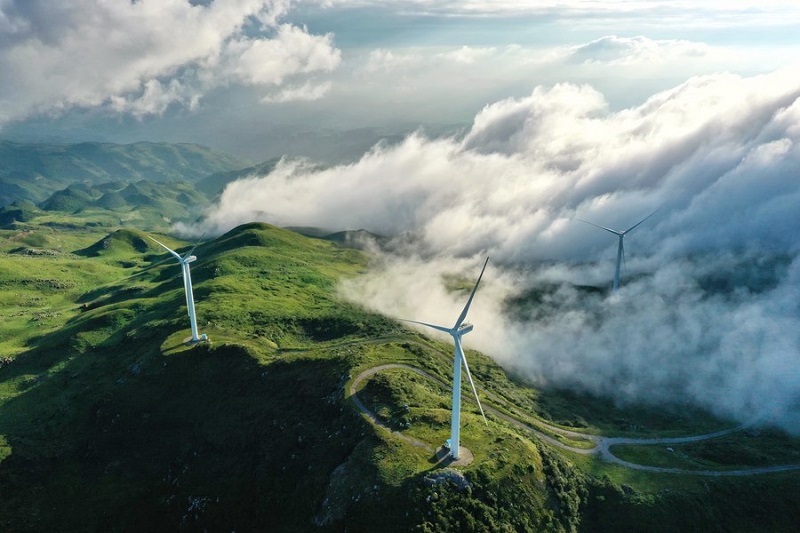Editor’s Note: Researchers in the field of carbon markets have witnessed a series of changes in climate issue. Comparing carbon market with carbon tax, which is better to tackle climate change? What are the advantages and challenges for China to implement climate policies? Dr. Guo Bowei, PhD at University of Cambridge and an assistant professor at the School of Applied Economics at Renmin University of China, gives his insights into this global issue in a joint interview with China Focus and Energy Observer, a monthly magazine dedicated to reporting energy industry and sustainable development.
As a participant in climate change, what changes have you observed in recent years?
Guo Bowei: I think the most impressive change is that citizens in China are more and more concerned about climate change, and they are curious about what it is. And another is that, in my field, I work on electricity market, the government and market regulators are also more and more concerned about this issue. In electricity market, for example, 3 or 4 years ago, people never talk about carbon emissions in electricity generation. Now, they come to me and ask me, can you help us to calculate our carbon emissions like the marginal emissions or marginal displacement of wind? The topic related to carbon emission in research or in the industry is also increasing.
Honestly, I think most of these are due to government, people are less concerned about climate change before 2020 when President Xi Jinping announced that we are going to achieve carbon neutrality by 2060.
Comparing carbon market with carbon tax, which is better to tackle climate change?
Guo Bowei: I think economists and policymakers are in some certain degrees of agreement that both are good and we should have both. For the emission trading schemes, it sets a total amount of emission that is allowed in the society. But the issue with this kind of policy is that the price is fluctuating. It’s hard to control.
Carbon tax is another thing. It doesn’t set the total limit of carbon emissions in this society, but it sets the prices or taxes. The government may use these taxation gains to subsidize renewable energy. But the problem is that the carbon reduction is not guaranteed. The increased prices from carbon taxes might pass through to consumers, and the total emission in the society will still remain the same. So the combination of the two policies might be the best way to tackle climate change.

Aerial photo taken on Aug. 19, 2020 shows wind turbines in Jiucaiping scenic spot in southwest China’s Guizhou Province. (Photo/Xinhua)
What are the advantages of China to implement climate policies?
Guo Bowei: In terms of policy implementation on climate change, China is quite late compared to other countries. But China has its special political system, and the policy has its nature of consistency. We always have some five-year plans, and our climate policy are in those plans. So I think the advantage for China, or you can say achievement, is the consistency of our policy. If we say we will achieve carbon neutrality by 2060, we will.
What is the biggest challenge for China to cope with climate change?
Guo Bowei: The biggest challenge is that we are still a developing country. We have some areas which are not rich. I think the priority for our country is still improving our social welfare. If we are going to achieve some climate change goals, it shouldn’t substantially sacrifice our economic growth. Rome was not built in one day.
We’re talking about carbon neutrality as a 40-year target. It’s not like we are doing it and we are achieving it in five years. So the government, the country needs some long-term planning, instead of some policies coming from nowhere, then they try to implement it one day, and then they change it to another policy another day.
Can you offer some suggestions to deal with global climate crisis?
Guo Bowei: Governments worldwide really should take this seriously. It’s about the entire human being. So I think politicians should stop using it, abusing it as a political tool in international negotiation. Those developed countries, if they say “we are really concerned about climate change”, then support us in terms of technology, in terms of funding, not like in the international meetings, and just accusing us of being the world’s largest emitters. We have 1.4 billion people in this country, and we have the right to survive and develop. I think governments need more communication. And cooperation is always better than competition.
Reporters of Energy Observer: Jiang Weihuan, Jiang Tao
Editors of Energy Observer: Feng Jie, Chen Yifang